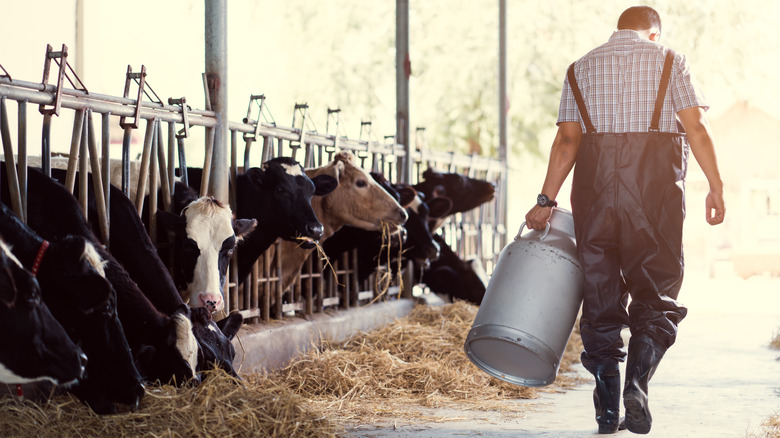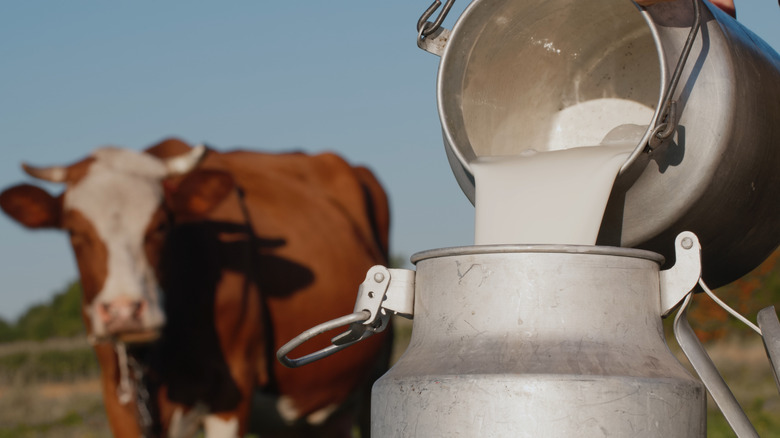
Even if you buy milk regularly, it’s likely that you don’t think about where it’s actually coming from. While name brands like Stonyfield Organic and Organic Valley may lead you to believe they go straight from the dairy pastures to the retailer, the truth is that the industry is controlled by big corporations, explains The New York Times. Horizon Organic, for example, is part of the Danone corporation. The company buys milk from dairy farmers across the U.S., then distributes it under the name Horizon Organic. The Times shares that small, family-owned dairy farms have been able to survive in the past by focusing on selling certified organic milk to distributors, but the organic milk market is expanding, and therefore, so is the competition.
For many years, these small farms have been responsible for most of the organic milk products in the U.S., however, there has been a rise in “mega-organic dairy farms” in the western states. Because these newer farms are operated on a larger scale, they can produce organic milk at a cheaper price. While this is good news for milk corporations, the Times reports it’s putting small farms in jeopardy, as companies like Organic Horizon and others are choosing to end their relationships with the local dairy producers.
Wisconsin has lost nearly half of its dairy farms

Wisconsin may be known as “America’s Dairyland,” but The Guardian reported in July 2021 its number of dairy farms dramatically declined by 44% over the last decade. It’s not that the demand for milk has changed, but rather the way the industry operates. Both The New York Times and The Guardian assert that dairy distributors naturally find it more convenient to pick up milk from one large farm than to make several stops at a various smaller farms in the region. These larger farms are also known as CAFOs, or concentrated animal feeding operations. In general, these large operations are home to at least 700 cows, usually thousands. Mark Stephenson, the director of dairy policy analysis at the University of Wisconsin-Madison, told The Guardian it used to be that 15 to 20 cows could turn around a profit, but only a generation or so later, even a 100 cow farm is considered small.
Todd Tuls, the owner of one of Wisconsin’s CAFOs, insists that small farms are responsible for their shortcomings. “It’s kinda like if Ford or Chevy woulda just kept building the 1972 truck and not kept improving it,” he told the outlet. But unless small dairy farms are able to expand to house thousands of cows, it seems they’ll unfortunately have to close for good. With more and more large farms popping up across the U.S. each year, many of them producing milk that can be labeled organic, large corporations no longer see the need to source from small businesses.
Source: tastingtable.com











